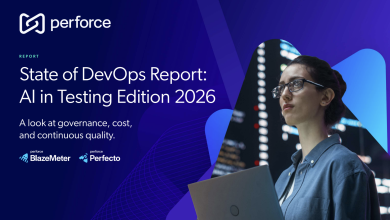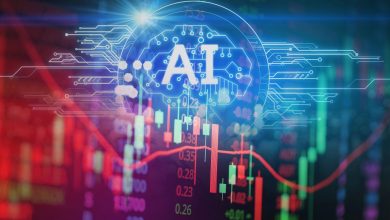
For millions of individuals and businesses, tax season has traditionally been a time of stressful filling out paperwork and last-minute calculations. Thanks to artificial intelligence (AI), the process is becoming much smoother and more efficient. Many tax firms, including ours, have seen how AI is beginning to remove the guesswork from the process.
AI is transforming how we approach tax management, making it seamless, smarter, and safer all year long. Intelligent tools can now help individuals and business owners understand their tax position in real time, anticipate what’s coming, and make smarter decisions in advance. That shift changes everything.
Smarter Decisions with Real-Time Tax Management
The old way of doing taxes was largely reactive. You’d collect everything at the end of the year, often with the help of a professional, and hope you didn’t miss a deduction or underpay. With AI, the process becomes far more strategic.
In today’s intelligent systems, the real power of AI lies in its ability to provide profound insights into your financial situation and help you make informed decisions. Unlike traditional tax management systems, AI tools go beyond simple automation. They offer real-time insights that show you exactly where you stand financially and what actions you should take.
AI can adjust your tax withholding based on changes in your income, new investments, or even major purchases. It also uses predictive models to help you estimate prospective tax issues before they occur. You may make mid-year changes based on actual data, such as raising retirement contributions or adjusting withholdings. This procedure allows you to make proactive choices that will greatly minimize your total tax burden.
The ability of AI to continuously improve your tax strategy throughout the year is what truly makes it worthwhile. It enables you to proactively manage your taxes as your life changes, rather than waiting until tax season to make modifications. It makes sure your tax plan changes as your financial objectives do, whether that means adjusting your income strategy or making contributions to retirement funds.
This feature is particularly crucial for those with fluctuating incomes and small enterprises, which often deal with erratic cash flow. AI-driven systems may help even out such swings by delivering more precise quarterly forecasts and pointing out strategies to reduce tax obligations in seconds.
Automated Tax Filing Saves Time and Reduces Errors
Reports indicate that AI-powered solutions can save tax professionals and individuals up to 30% of the time needed for high-volume preparation tasks. Repetitive procedures such as data input, document uploads, and classification are eliminated, which makes the filing process quicker and more efficient while maintaining accuracy.
This automation also results in an impressive decrease in errors. AI has been demonstrated to minimize mistakes by up to 40% due to its capacity to methodically arrange receipts, monitor deductions, and immediately flag discrepancies. This degree of built-in precision decreases the possibility of losing out on crucial tax breaks and the need for back-and-forth adjustments for a smoother, more accurate experience that promotes confidence in both individuals and small business owners.
With the capacity to automatically classify and arrange financial data, AI simplifies the often-difficult chore of monitoring costs throughout the year and identifies possible tax-saving opportunities that might otherwise go unnoticed. This feature enables company owners to concentrate on their primary operations while ensuring that their tax responsibilities are properly handled.
Combining AI with Human Insight for Smarter Tax Filing
Although artificial intelligence technologies provide incredible automation and real-time updates, combining them with the knowledge of Certified Public Accountants (CPAs) generates a stronger synergy that can greatly improve the tax filing process. AI systems are made to effectively manage enormous amounts of data, perform repetitive activities, and provide real-time tax problem insights. With tax laws constantly evolving and financial circumstances becoming more complex, organizations are still required to call for a degree of human knowledge and strategic thinking that artificial intelligence cannot entirely mimic on its own.
Working together, artificial intelligence and certified public accountants streamline the filing process and provide fully informed results. In fact, a recent survey says the overwhelming majority of tax and accounting professionals believe artificial intelligence will either significantly or entirely change their employment within the next five years. Giving CPAs a solid basis for their professional judgment, artificial intelligence can rapidly arrange financial data, classify revenues, and even provide early forecasts based on predictive models. AI-powered technology, for instance, may quickly find possible tax-saving options that the CPA would then correctly evaluate and adjust to fit the client’s particular and frequently complicated situation.
How AI Safeguards Your Tax Filing Process
While artificial intelligence is best recognized for optimizing tax tactics and simplifying processes, it also plays an important role in improving security and lowering the risk of fraud. The IRS continues to work hard to prevent tax fraud, with over $2.1 billion recorded in bogus tax refunds lately. AI can assist in defending against these dangers by recognizing irregularities in tax returns and alerting to suspected fraudulent conduct before it becomes a problem.
AI’s advanced algorithms can analyze trends in tax data and reveal irregularities that might otherwise go undetected. This functionality ensures that filings are both correct and compliant, giving taxpayers greater confidence. While AI’s main function is to expedite tax administration, its capacity to identify possible fraud offers essential protection, rather than depending on conventional cybersecurity measures.
The Future of Taxes: Intuitive and Empowering
Artificial intelligence is changing the way we think about tax management and making it a continuous, proactive component of our financial life rather than a one-time event. AI enables people to make informed choices throughout the year, whether they are preparing for retirement, managing life transitions, or maximizing their everyday spending.
As AI gets more firmly ingrained in personal finance, combining tax management, banking, and financial planning, the experience becomes more unified and natural. Instead of juggling disparate systems, you’ll benefit from a comprehensive perspective of your financial health, with tax planning seamlessly integrated into your overall long-term objectives.
Incorporating technology and automation into the tax process isn’t just about saving time — it’s about creating space for deeper, more personalized service. By automating the repetitive and manual parts of tax preparation, CPAs can dedicate more attention to understanding the nuances of each client’s unique situation. This human aspect is invaluable, especially in complex tax scenarios where strategic thinking and tailored advice can make a significant financial difference.
Rather than replacing the CPA, technology elevates their role. It allows them to shift from task-driven work to high-value, relationship-focused advising. And in an environment where every client’s circumstances, goals, and challenges are different, having the capacity to truly listen, analyze, and provide customized strategies is not just beneficial — it’s essential.





